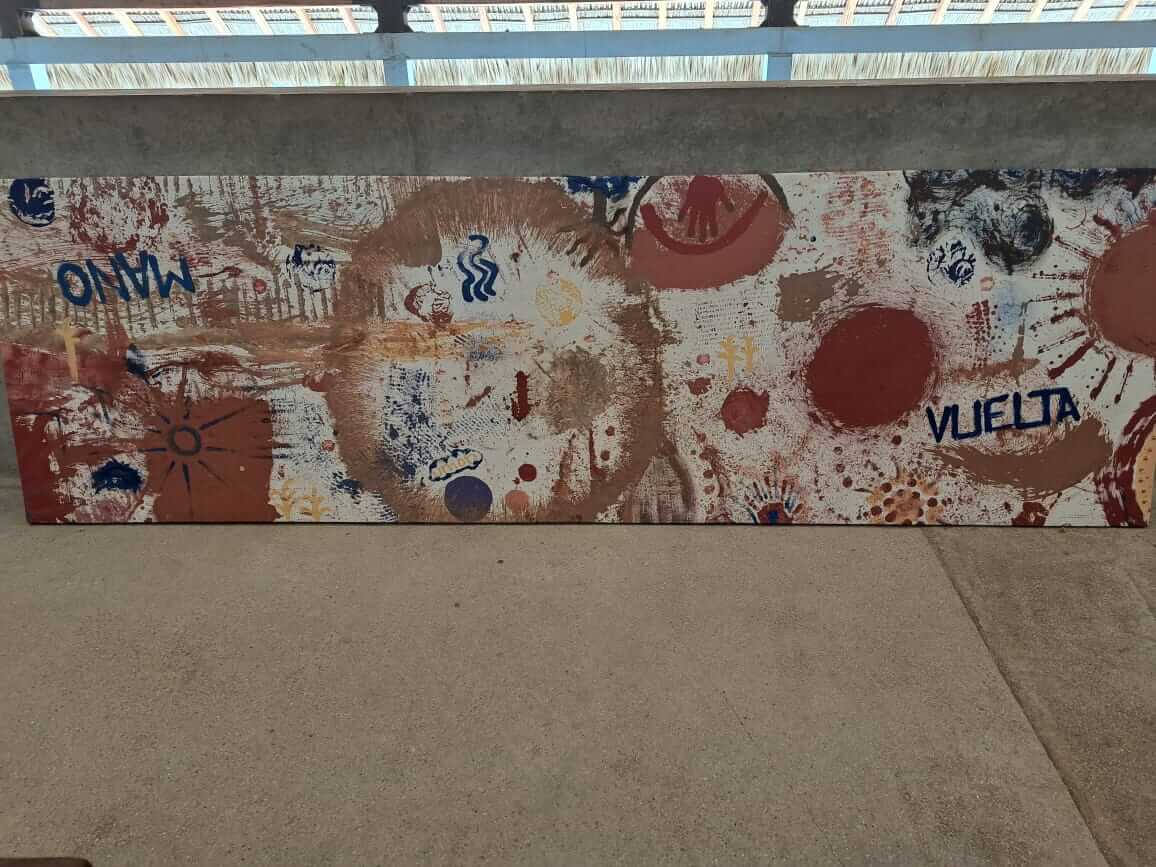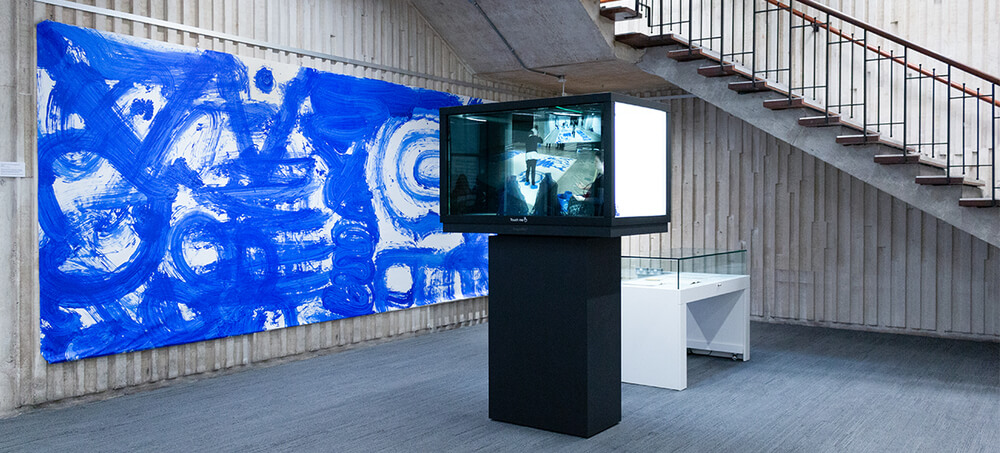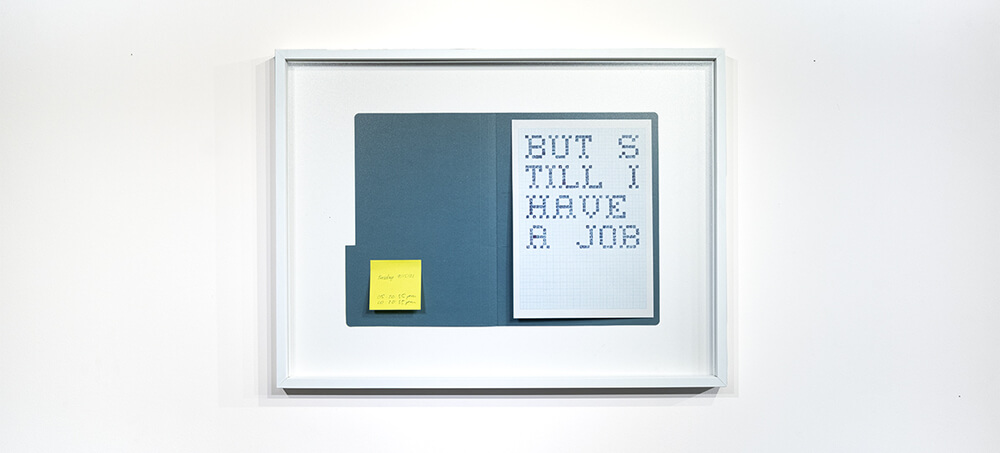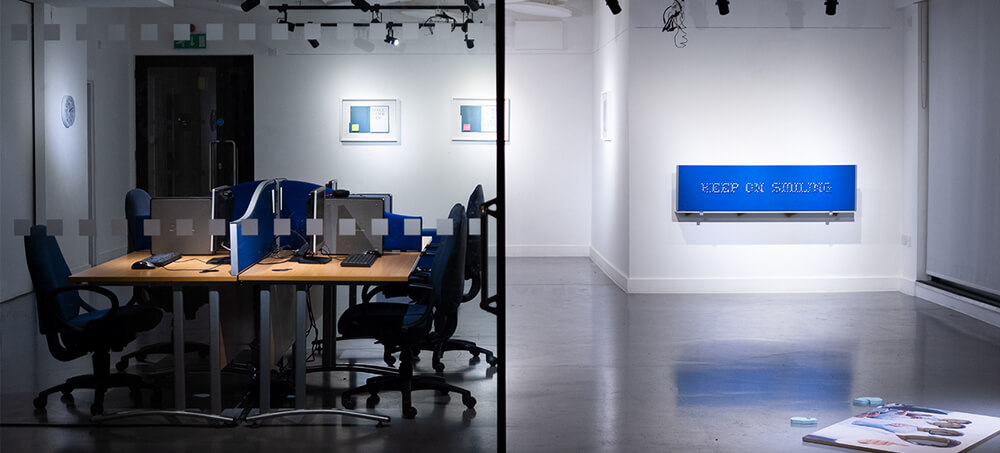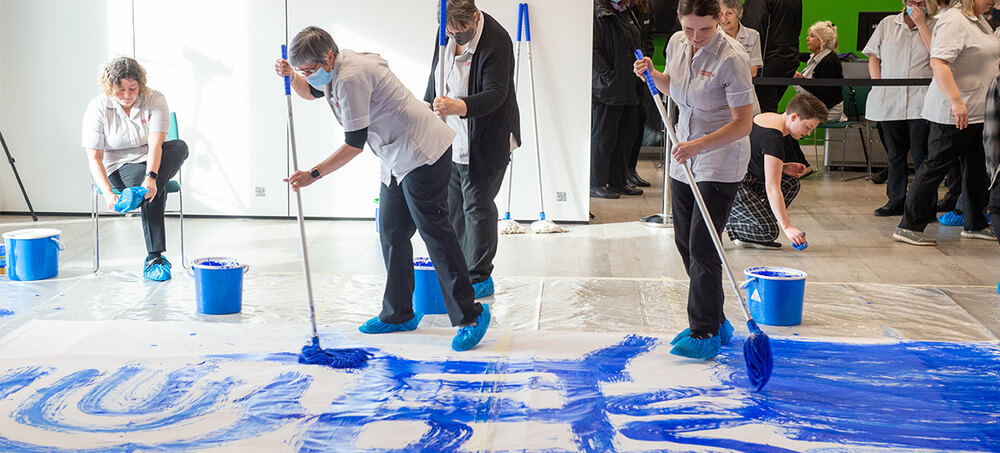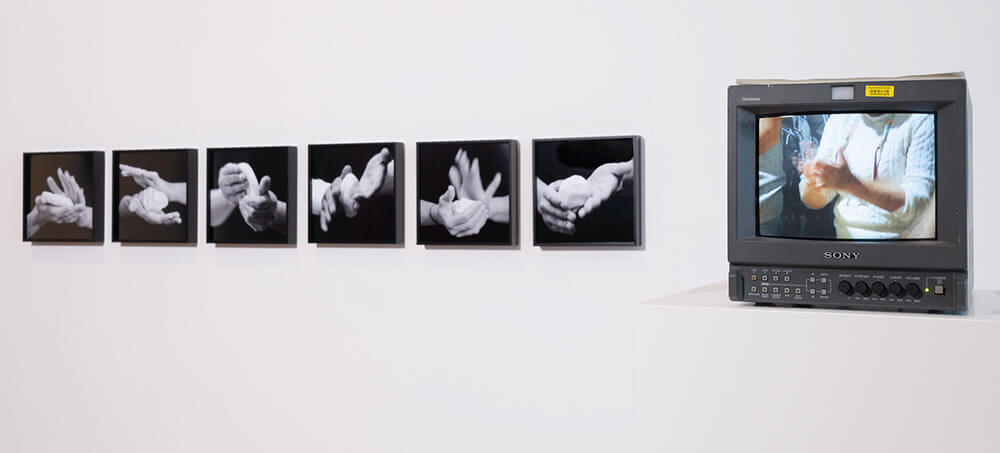Community Project
In these six weeks, I would like to be able to carry out a series of workshops where local youth can use corn from a social, cultural and historical point of view and simultaneously as an instrument of visual manifestation to create new individual and collective narratives. During these workshops we will be able to gather different perspectives on this grain and its current cultural presence.
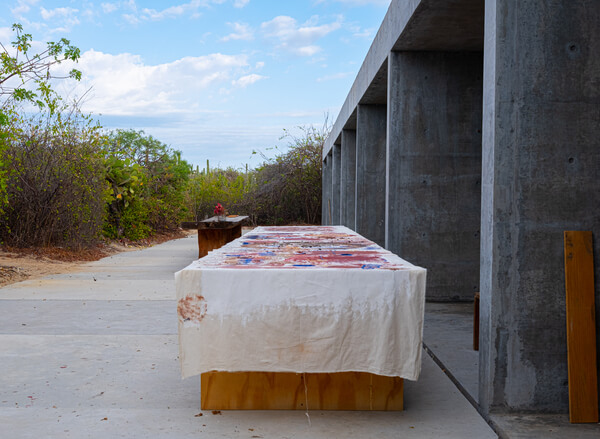
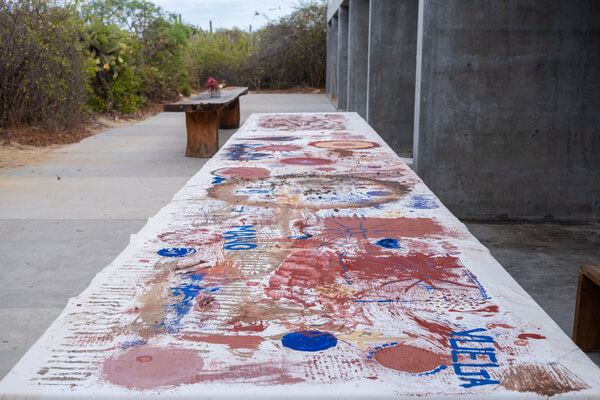
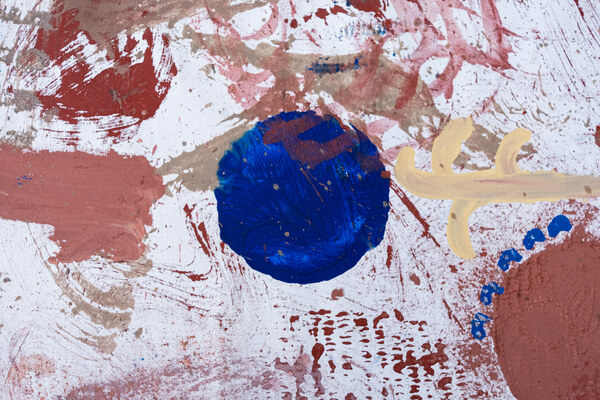
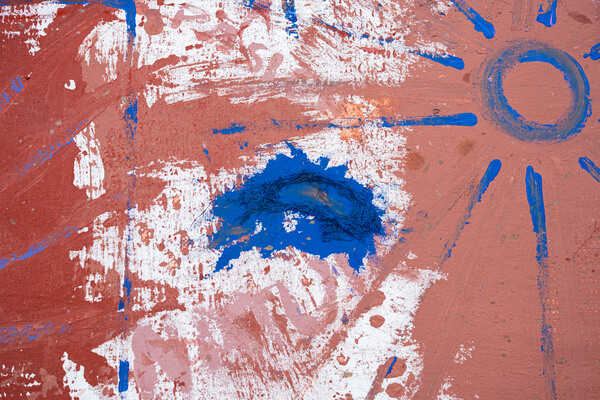
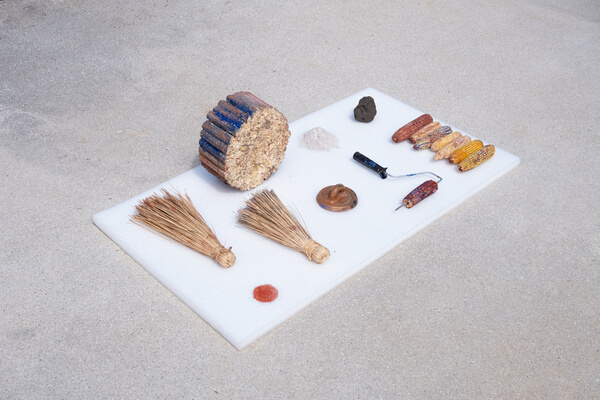
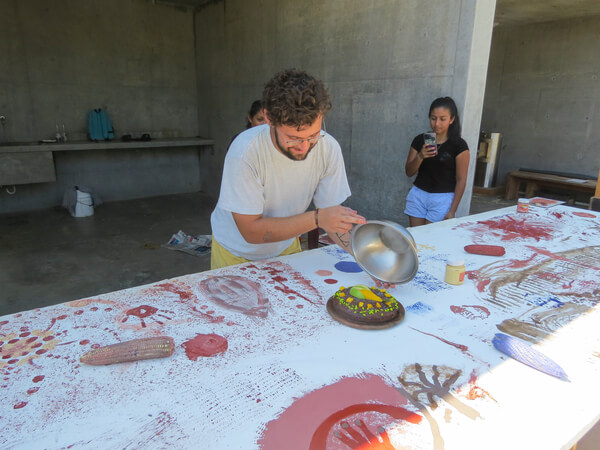
Log-Piece
Mano Vuelta is a collective work created from utensils and materials made with corn and clay as primary raw materials. The pictorial recording processes pay tribute to the diverse ecosystem that emerges around this cereal and to the complex interdependence between it and human beings. The title of the work, “Mano Vuelta”, comes from the expression used in the state of Oaxaca to refer to mutual, collaborative, and supportive help, especially in agricultural production processes.
The dimensions of the work are based on the measurements of the table where the gardening, clay, maintenance, and kitchen teams usually eat. The choice of these specific measurements seeks to highlight the table as a space for sharing time, rituals, and traditions, as well as the center where dialogue and culture emerge. The table is a space where different opinions, social hierarchies, and customs can be appreciated. The work, with its dimensions of 3m long x 90cm wide, pays homage to the conversations, exchanges, and members at this table, who are also the participants and collaborators in the work.
When observing Mano Vuelta, one can notice that the pictorial elements have no defined orientation. This is because the painting was carried out horizontally, with the canvas placed on a table. In this way, each viewer can choose their own position. As a result, there are elements that contradict what is usually considered up, down, or upside down. This characteristic is fundamental to reflect the pluralism of perspectives and the occupation of space.
The dimensions of the work are based on the measurements of the table where the gardening, clay, maintenance, and kitchen teams usually eat. The choice of these specific measurements seeks to highlight the table as a space for sharing time, rituals, and traditions, as well as the center where dialogue and culture emerge. The table is a space where different opinions, social hierarchies, and customs can be appreciated. The work, with its dimensions of 3m long x 90cm wide, pays homage to the conversations, exchanges, and members at this table, who are also the participants and collaborators in the work.
When observing Mano Vuelta, one can notice that the pictorial elements have no defined orientation. This is because the painting was carried out horizontally, with the canvas placed on a table. In this way, each viewer can choose their own position. As a result, there are elements that contradict what is usually considered up, down, or upside down. This characteristic is fundamental to reflect the pluralism of perspectives and the occupation of space.
Venezuela
Caracas, 1995
His work explores the clash between diasporic identity, migrant labour, and cultural heritage. These collisions are explored through materials, everyday objects, and performative actions that emerge with each research project. Oliva’s multidisciplinary practice is driven by collaborative processes and aims to react to and expose sociopolitical oppression through participatory performances or public interventions. The result of his work is often the enactment of these social exchanges and provocations shaped by the commons and site specificity. Oliva graduated from the Royal College of Art, London, in 2020 and completed her Bachelor of Fine Arts in Madrid with a mobility grant from the Ministry of Education. Oliva currently leads the Visual Communication postgraduate course at Ravensbourne University and is an associate tutor in the Visual Design postgraduate course at Kingston School of Art.

